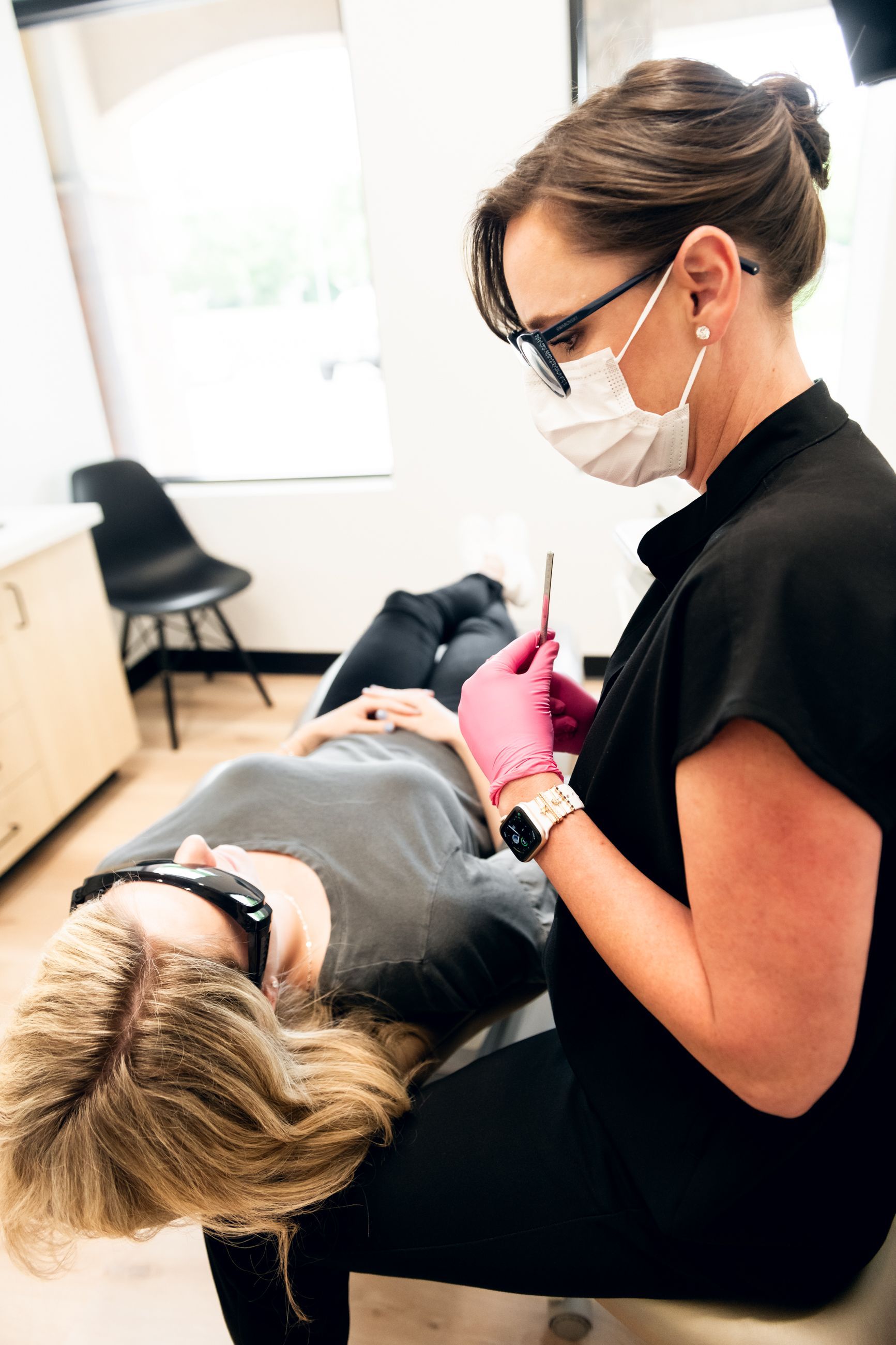Dental Crown Types and Procedures
A dental porcelain crown is a tooth-shaped cap placed over a tooth to cover it and restore its size, shape, and strength while improving its appearance and function. Placing a crown on a tooth is a common dental procedure to restore teeth that have been weakened by decay, fracture, cracks or excessive wear.
At The Smile Suite, we typically do not use metal in the crowns and often opt for a zirconia crown due to its biocompatibility, strength and esthetics

When are Porcelain Crowns Needed
Two Types of Crowns
What Steps Are Involved in Preparing a Tooth for a Crown?
Preparing your tooth for a dental crown requires at least two dental visits.
Caring for Temporary Dental Crowns
Since temporary dental crowns are not permanent, there are some necessary precautions to observe until your permanent crown is completed.
- You should avoid eating chewy or sticky foods like chewing gum or caramel. They have the potential of grabbing or pulling off your temporary tooth crown.
- Avoid chewing on the side where the temporary crown is. Chew most on the opposite side of your mouth.
- Avoid munching on hard foods like nuts or seeds for the time being. This way, you avoid the risk of your temporary crown getting dislodged or broken.
- Rather than lifting out your dental floss, sliding is better when you clean your teeth to prevent the temporary crown from pulling off.
Common FAQs for Dental Crowns
Do you need special care for your crowned tooth?
The average lifespan of dental crowns is about five to 15 years. The durability depends on several factors including brushing, flossing, wearing a nightguard, and getting routine
dental check ups and
cleanings. Some practices should be avoided, such as biting fingernails, clenching or grinding the teeth, or even chewing ice.
DO YOU NEED SPECIAL CARE FOR YOUR CROWNED TOOTH?
No. Your crowned tooth does not need a particular dental care routine. We strongly recommend that you continue to maintain your daily oral health practices, such as brushing, flossing, and rinsing with mouthwash twice a day.






